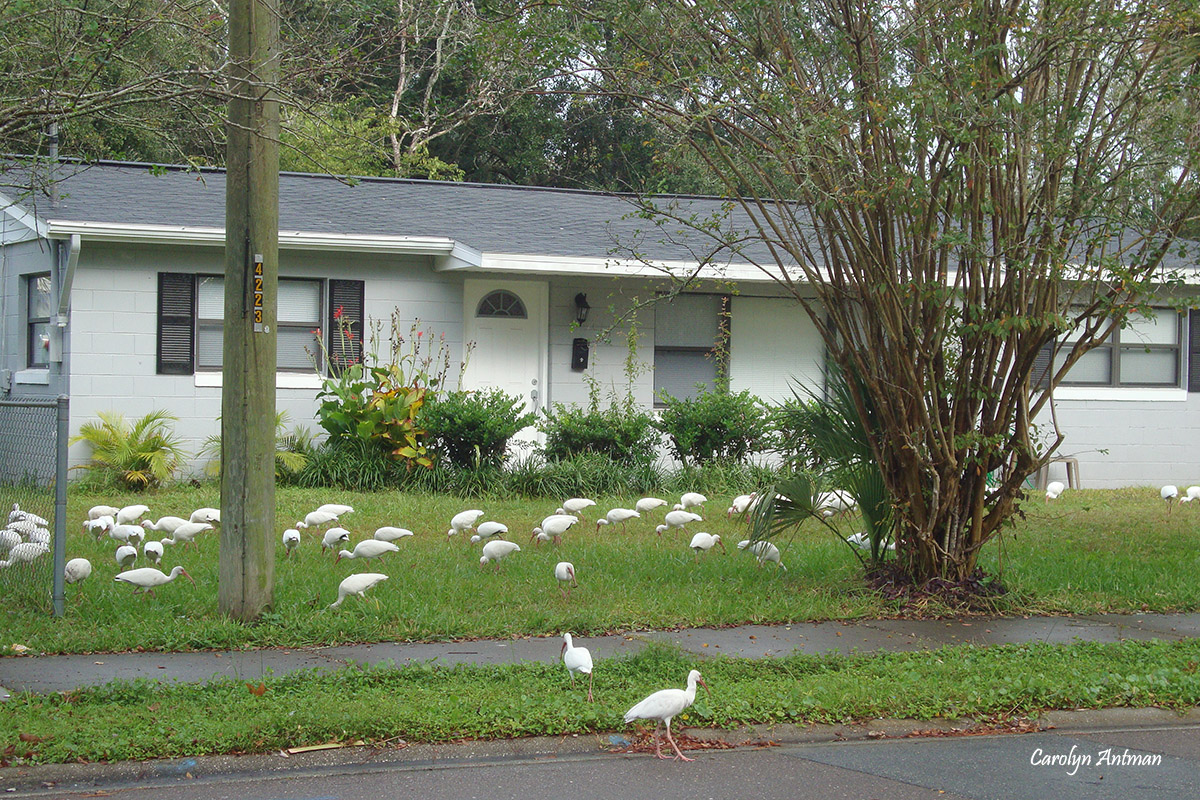Keeping Your Yard Safe for Birds and Bugs
 So much is happening at this time of year when it comes to birds: our wintering birds are still here eating as much as they can to prepare for spring migration, birds migrating through are looking for food, our local birds are filling up on food in preparation for breeding, and our first-year birds are filling up on food as they come into adulthood. While we have many beautiful birds at our feeders, other birds depend on finding something to eat on the ground. Very evident are the flocks of White Ibis (and their brownish young) scouring the neighborhoods looking for critters in the lawn, but Yellow-rumped Warblers, Palm Warblers, American Robins, Eastern Bluebirds, and Chipping Sparrows are also in the grass this time of year for the same reason.
So much is happening at this time of year when it comes to birds: our wintering birds are still here eating as much as they can to prepare for spring migration, birds migrating through are looking for food, our local birds are filling up on food in preparation for breeding, and our first-year birds are filling up on food as they come into adulthood. While we have many beautiful birds at our feeders, other birds depend on finding something to eat on the ground. Very evident are the flocks of White Ibis (and their brownish young) scouring the neighborhoods looking for critters in the lawn, but Yellow-rumped Warblers, Palm Warblers, American Robins, Eastern Bluebirds, and Chipping Sparrows are also in the grass this time of year for the same reason.
Although lawn maintenance companies claim that their pesticides and other products are safe for birds, this is often not the case. Several websites discuss the dangers that pesticides, fungicides, and weed killers pose to birds. According to an article posted by todayshomeowner.com, “67 million birds die in the U.S. each year due to pesticide toxicity.” The article contains a list of chemicals to avoid and a list of products that are less toxic. The American Bird Conservancy has a great deal of information about the connection between pesticides and bird poisonings, and several other conservation websites also have information reinforcing the dangers of pesticides.
Besides poisonings, we are also hearing about the “insect apocalypse”, the documented decline in worldwide insect populations.
All of this makes it harder for insect-loving birds to survive. How can you help? First and foremost, stop using pesticides, fungicides, and weed killers on your plants and lawn. Planting native plants will encourage native insects to come and those plants are used to a certain amount of nibbling from native insects. The birds will help you out if the insects are native – those are the bugs they are looking for to fatten up for migration or feed their hungry chicks. If you have a garden, manually pick off offending bugs, and if you must treat the plants, choose from the list of “safer” products. Target the insects specifically, not your whole lawn. This goes for weeds as well, as weed killers can also be toxic to birds. Learn more about how suburban yards can help save biodiversity in this great article from Scientific American.
Thank you for keeping your yard safe for birds and the insects they rely on!
~ Carolyn Antman, Conservation Director for Duval County